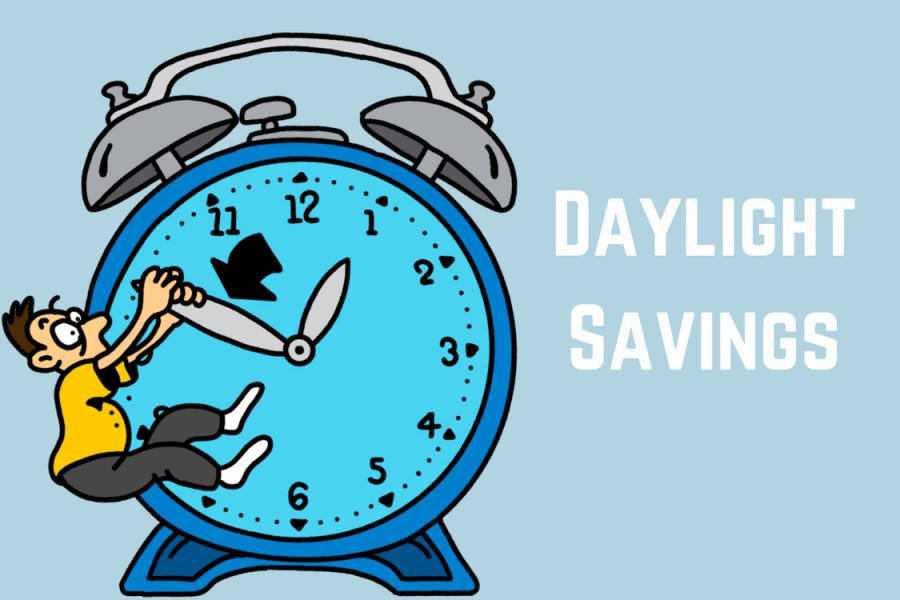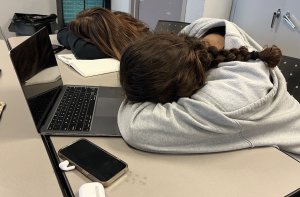Is Daylight Savings Really “Saving” Anyone?
Due to time change, many are beginning to wonder if it is actually worth it.
Nov 27, 2021
For years, the debate of Daylight Savings Time has striked many on whether or not it is truly effective. DST is the practice of delaying the clock to be active during summer and receive more rest during winter. Changing the time has proven to be an outdated practice that truly serves no purpose and only makes us think it’s bedtime at 5:00pm.
Initially, the idea of DST came from Benjamin Franklin in 1784 as a way to lower the rate of candle usage, and for the most part, it worked. It allowed people to stop being so dependent on candles when daylight was available. Then in the 1900’s, DST was for times of war or crisis when troops had more that needed to be done. Now, setting the clock back an hour is used to “conserve energy”, but studies show that energy consumption had little to no change during DST. The summer days are long and hot, meaning light consumption decreases and air consumption actually increases. The adjusting of times proves to not serve its original intended purpose, so why is it still around?
“I think the concept made sense when it was originally being made, and I think as a society we have come to accept that it sucks!” sophomore Amalia Garrido said.
Few states have decided against DST, like Hawaii and most of Arizona. Senators in the United States, such as Marco Rubio R-FL, have introduced the Sunshine Protection Act, which means the US would erase the need to adjust clocks twice a year, and have more hours of daylight for the whole year. The bill has yet to be put into action, but can be expected to prevent the hassle that is the changing of time.
The switching of time schedules can negatively impact the circadian rhythms of over 1.6 billion people who participate in DST around the world. These detrimental effects go a long way. In fact, returning to standard time was linked to an 11% increase in the incidence rate of unipolar depressive episodes and a 40 minute decrease on the average person’s sleep. Mood changes, grumpy attitudes and seasonal depression are seen throughout the short winter days. Our days are structured by time, and to shift it would obviously lead to poor situations like these; all of which can be prevented by ending the tiring cycle of DST.
“I can’t say I’m a huge fan of when we lose an hour, being that it’s so painful to get used to waking up for school, let alone an hour earlier than our internal clocks are used to,” sophomore Agatha Askari said.
The changing of the hour can be hard for many. While the time can manually be modified, our internal clock cannot. To manage the shift, it is recommended to get plenty of hours of sleep. Creating a strict sleep schedule, limiting caffeine and screen time intake all come in handy for surviving this winter season.















